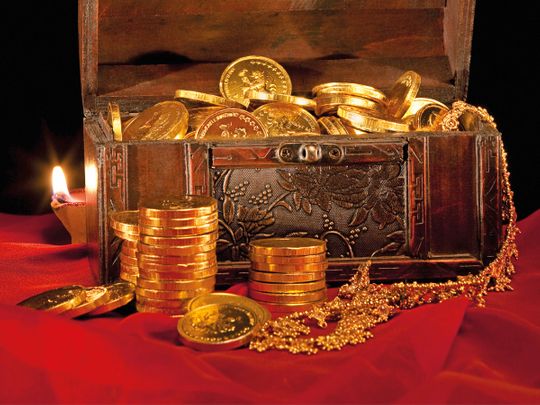
Diwali is traditionally regarded as one of the most auspicious days of the Hindu calendar, and many Indians believe investments made on the day or around this period will yield significant returns. However, India’s economy has slowed in recent months, with GDP growth falling to 5 per cent in the June quarter, as compared to 8 per cent in the corresponding period in 2018, following a sharp deceleration in consumer demand and lower investment. Revival measures have been announced but some Indian expats in the UAE remain worried.

While some may consider it gloomy, in reality the economy is just shredding unhealthy fat, and the bad body vitals have been diagnosed for correction.
“Slow GDP growth, financial stress and weak job creation are the new stress blocks being discussed across tea stalls and dining rooms in India,” agrees veteran banker and serial investor Dr Sharad Nair, Founder and Director of the UAE-based Apex Advisors, who nevertheless takes an optimistic view of the macroeconomic situation. “While some may consider it gloomy, in reality the economy is just shredding unhealthy fat, and the bad body vitals have been diagnosed for correction.”
He expects government action to pay off in a number of ways. “The flood of new capital as a result of the new tax bonus will be deployed back into the business or to create new business and new jobs. The Indian economy will jump to over 7 per cent GDP growth by the first quarter of 2020.”
Those figures are in line with IMF estimates. The global advisory body lowered its growth forecast for the current financial year to 6.1 per cent but said the Indian economy would rebound to 7 per cent over the 2020-21 financial year.
In the short term, however, there are a number of risks ahead on account of global economic trends, says Jagdish S Golani, Senior Executive Financial Planning Consultant at Nexus Insurance Brokers in Dubai. “Expect stock markets to fall further and more rapidly on speculation that economic growth will be hurt by the ongoing trade war between the US and China,” he tells GN Focus.

Good capital appreciation and rental yield have increased NRI demand for Grade A offices, IT parks and logistics centres.
“That said, there are short-term upside risks for this forecast as the central bank action to add monetary liquidity into the financial system may make it cheaper for companies to borrow and investors to take loans to leverage their stock portfolios thus boosting stocks.”
Against this backdrop, our experts offer their views on some asset classes ahead of Diwali 2019.
Property
“NRIs looking for end-use may get a good deal in the residential segment given the current slowdown and the depreciation of the rupee. Real estate is an illiquid asset class and faces risks such as construction delays and developer default,” Golani says. India’s commercial office property presents a potentially profitable alternative this Diwali. “Good capital appreciation and rental yield have increased NRI demand for Grade A offices, IT parks and logistics centres,” says Golani. “A good commercial property can give an average rental yield of 6-10 per cent against the current residential property rental yield of 1.5-3.5 per cent.”
Dr Nair says that while the establishment of the Real Estate Regulatory Authority in each state offers security against unscrupulous developers, it’s important for NRIs to purchase property based on recommendations from family and friends and on on-ground research.
Stock markets
Indian stock markets will be open for an auspicious Diwali mahurat trading session on October 27 this year. NRIs looking to make investments at this time should adopt a decent position in consumption, banking, and automobile companies, Golani says. All three sectors have been badly hit in recent months, presenting a significant buying opportunity. “With the festive season around the corner, private consumption is expected to rise,” he says. For anyone looking to profit from Indian equity markets during the mahurat trading session, he advises looking to brokerages’ buy calls with fixed target and stop-loss prices, and then monitoring asset performance until either limit is reached.
Alternatively, look to Exchange Tracker Funds (ETFs) linked to the Nifty and Sensex indices in India, Dr Nair advises. “ETFs will ensure you make the same gain/loss linked to major indices performance with lower costs than conventional mutual funds.”
Mutual funds
“Mutual funds are preferred over the short to medium term, below which investors should look at term deposits,” says Golani. “The short duration fund category, which invest in instruments between one to three years, have offered 5.73 per cent in the last year. Conservative investors can look to debt funds instead, often considered relatively safer as investment instruments.”
Nair cautions against blindly investing in star performers that offer above-market returns as this may not be sustainable over the long term.
Gold
Buying gold during festive occassions is an Indian tradition, Golani says investors may want to look elsewhere this year. “Gold has soared in 2019, hitting a six-year high in dollar terms,” he explains. Nair agrees. “It is prudent to buy gold as a token of good luck, but keep it limited to jewellery for your wardrobe.”












